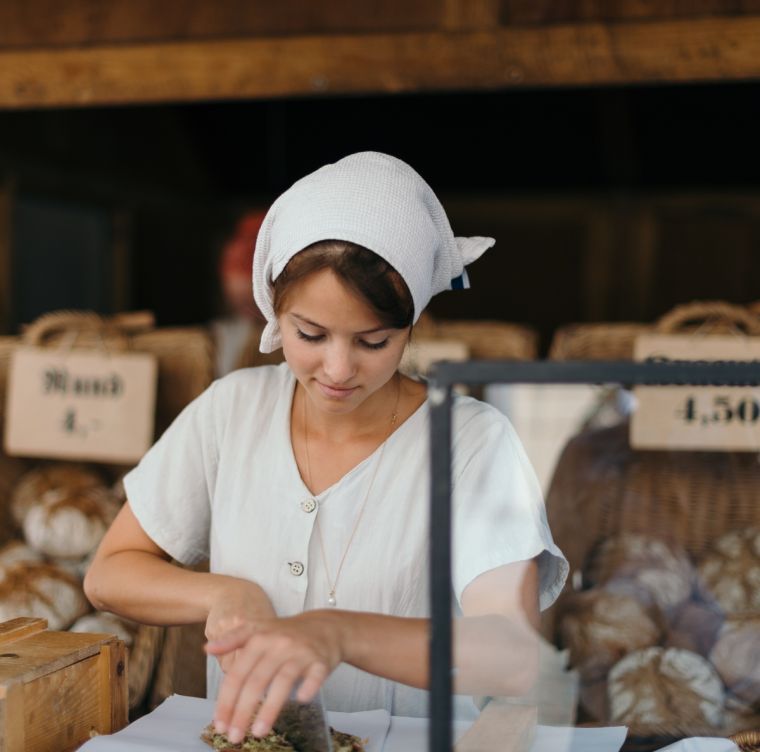Jesus cared about the scandal of food going to waste and so should you

One of the privileges of being a Christian is being able to join with others across the world in praying the Lord's prayer and asking our Father to give us our daily bread.
And yet we now know that each month, we throw away enough bread from our homes to fill St Paul's Cathedral to the brim.
It's not just bread either. When you add up all the perfectly edible food we bin from our homes – fruit, vegetables, meat, dairy, even in-date foods – it comes to £470 per household each year.
In a world where so many are hungry, this surely can't be right. And the injustice doesn't end there.
Food waste is now more of a hot topic thanks to campaigns by high profile people such as Hugh Fearnley-Whittingstall and Jamie Oliver, but how many of us are aware of the link between food waste and climate change? Our current food system is inefficient, and the greenhouse gases emitted from growing, farming, processing, transporting and disposing of our food are huge.
We throw away enough food from our homes each year to fill Wembley Stadium nine times over and these are needless emissions that contribute to climate change.
Tearfund sees first hand that this is making life harder for people in some of the world's poorest countries – leading to droughts, floods and less reliable rain, and leaving people struggling to feed themselves. If we continue to live in a way that brings harm rather than renewal, families will be pushed further into poverty across the world.
Jesus shows us another way to live. We see his act of lavish generosity in the feeding of the 5,000 and we learn about God's gift of food, but that's not the end of the lesson. The leftovers are an important part of the story. Jesus asks his disciples to gather up what is left. He says 'Gather the pieces that are left over. Let nothing be wasted.' (John 6:12)
Picking up the leftovers is a vital part of the story, a part that can often be overlooked. In picking up the leftovers there is a key discipleship lesson here: waste matters. Jesus doesn't just say, 'Ah, leave it, surely the birds will eat it.' This food is valuable and although plenty is left over, it is worth the energy and effort of collection.
Together we can gather up the pieces. If every single one of us eliminated our avoidable food waste at home, we could save emissions equivalent to taking one in four cars off the road in the UK. As consumers, reducing our food waste is one of the simplest things we can do to live more sustainably, and as customers, we can also encourage our retailers to play their part too. The combined impact of lots of people living differently can make a big difference, and shows supermarkets and governments that food waste is an issue that matters to them.
That's why we are inviting people to take the Renew Our Food pledge (www.tearfund.org/foodwaste) to reduce your food waste at home, and also call on your supermarket to do the same. We're also hosting a number of delicious Food Waste Feasts (www.tearfund.org/feast) across the UK, and encouraging churches to host these too, using food that would otherwise go to waste.
Let us follow Jesus' example and let nothing be wasted. Please get involved with this: put your faith into action and pledge to renew our food today. www.tearfund.org/foodwaste
Ruth Valerio is Global Advocacy and Influencing Director at the Christian relief and development agency Tearfund. On Twitter @Tearfund #RenewOurFood











